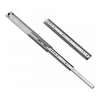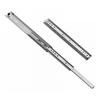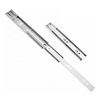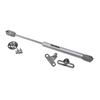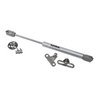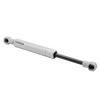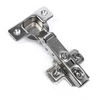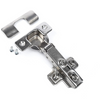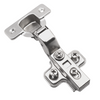Medicine Cabinet
No products found in this collection.
Essential Medicine Cabinet Must-Haves UK Homes
It's vital to have a medicine cabinet ready for everyday health issues in the UK. The NHS recommends keeping key health essentials at home. You should always have pain relievers like Paracetamol and Ibuprofen for pain and fever. It's also good to have antihistamines for allergies and oral rehydration salts to restore electrolytes.
Don't forget treatments for indigestion for stomach upsets. Having a range of plasters for cuts is smart too. A digital thermometer is a must for checking fevers accurately. Always check your home remedies cabinet for out-of-date items and proper storage.
Think about adding items for personal or family health needs. Keeping your health essentials organised and up-to-date ensures quick and effective treatment. This helps you manage daily health issues at home in the UK.
Top Over-the-Counter Medications
In the UK, many over-the-counter medications help with minor health issues. These are essentials in UK homes. You can find them at pharmacies and supermarkets. Antacids quickly ease indigestion and heartburn. Cough medicines and throat lozenges reduce cold and flu symptoms.
Anti-inflammatory gels are good for muscle pain. Antiseptic creams treat minor cuts and stops infections. Hydrocortisone cream is key for skin irritations like eczema and dermatitis.
The UK has strict rules for storing medicines at home. Only pharmacists can give out certain medicines and doses. This keeps usage safe. Always talk to a healthcare worker before starting new medicines. This prevents bad reactions and drug mix-ups.
Keeping an organised medicine stash means treatments are always ready at home. It helps keep your family healthy. It's important to regularly check your medicines. This ensures they work well and follow the latest health guidelines.
First Aid Essentials
A well-stocked first aid kit is key in any UK home's medicine cabinet. It's vital for dealing with small injuries and emergencies. Include various sizes of sterile gauze dressings to cover wounds. Also, have bandages for support, safety pins to secure them, and disposable sterile gloves. Tweezers are a must for removing splinters and tiny pieces of debris.
In your medicine cabinet, you should also keep a leaflet on first aid basics. Knowing these principles can save lives in emergencies. It's essential to have eye wash and eye bath solutions for eye-related issues.
Keeping your first aid kit ready means replacing items you've used. You must also know how to use each item in the kit. Taking first aid courses in the UK is a good idea to be better prepared. For bathroom organization, it's crucial to keep your first aid items in order and easy to get to. This way, you can quickly handle any unexpected injuries.
Medicine Cabinet Organisation Tips
Organising your medicine cabinet is crucial for quick access to health essentials. In UK homes, placing the medicine cabinet in a cool, dry area is advised. This is because moisture and sunlight can harm medications.
Keep all first aid items together for fast use in emergencies. Transparent storage containers help by letting you see and grab what you need quickly. Label these containers clearly to help those with trouble seeing.
Regularly check your medicine cabinet to throw away old medications and restock. Keeping an up-to-date inventory means you're ready for any health issue. Following these tips will keep your medicine cabinet useful for your family's health.

